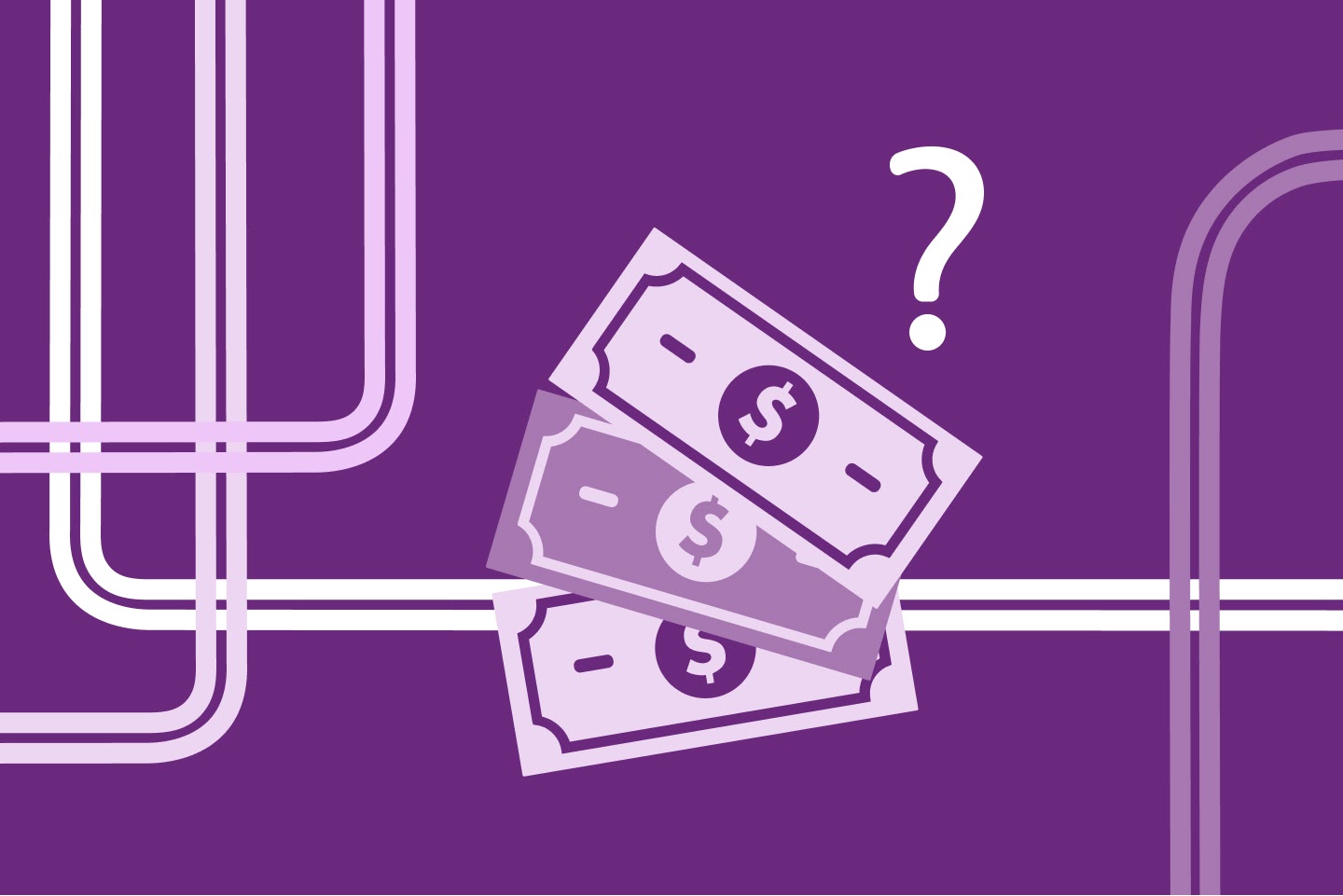Many of your financial "mistakes" are not your fault. And you're not alone.
By
Alex Cramer

Imagine playing a game, but before you start no one tells you what the rules are. You don’t know how to score, who’s on your team or what a penalty is. You don’t even really know how you’re supposed to win.
Now imagine that this is the most important game of your life and the difference between winning and losing will determine whether you can get a mortgage, buy a car or even send your children to college.
That’s what personal finance is like for many Americans. By the time we’re teenagers, many of us have received dozens, if not hundreds of credit card and financing offers, but very few of us ever receive any kind of personal finance training or even take a class to explain basic concepts like what a credit score means and how it can impact our lives.
The consequences of not knowing the rules of finance and credit can impact you for your entire life, but when we spoke with our members, one thing we heard again and again is that their journey with credit began before they really understood what the rules were.
For many Mission Lane members, their money problems started when they were young, had their first credit card and got into trouble because they weren’t aware of everything that goes into responsibly managing credit.
“Growing up I wasn’t really taught about credit and my parents just told me to never get a credit card,” Mission Lane member Rebekah said in her interview. “Then as soon as I could get one, I maxed it out at the mall as a teenager.”
At the time, Rebekah worked part-time as a hostess in a restaurant making $9 an hour, but she was entrusted with more credit than she knew how to manage.
While some people get in trouble for overspending, Mission Lane member Tim had problems because he never used credit.
"I really did not have a clue about credit,” he told us. “If I needed something, I just went and bought it with cash. Never financed anything. Then, after my divorce, I found out just how much I needed credit. And I had none. My credit score was like 10. I'm like, Whoa, what the heck is going on with this?”
Tim and Rebekah’s experiences are not unique. Most people are exposed to dozens of different financing and credit offers every year, but few people are ever educated on the proper way to use them.

Though most people understand that they have to pay their credit card bill on time, there are other, less obvious rules that can do just as much damage to your credit as missing a payment.
Card member Anona told us that she unintentionally damaged her credit score in the pursuit of chocolate.
“When I was in college, they would give out candy bars if you applied for a card. I didn't know that just applying for a credit card can have a negative effect on your score. So I just kept applying so I could get more candy bars.”
Anona took a major hit to her score not because she spent recklessly or didn’t pay her bills, but because she had a sweet tooth and didn't know that even just applying for a card can lower your credit score.
Credit card companies have long been known to aggressively target college students who can be desperate for money and lack a high level of financial knowledge. One particularly nefarious credit company actually offered hungry students meals, but then forced them to fill out a credit card application before they would allow them to eat.
In 2009, Congress passed the Credit Card Accountability Responsibility and Disclosure Act of 2009. The Credit CARD Act provides protections for card holders from predatory practices, including banning the use of gifts to entice consumers under the age of 21 to apply for a credit card, such as what Anona experienced.
While legislation such as the Credit CARD Act is helpful, it’s no substitute for education. We noticed that what people with better financial outcomes have in common is not that their parents were bankers or that they had advanced business degrees, but that at some point, early in life, they were fortunate enough to have someone teach them the basics of credit and personal finance.
Growing up in Norfolk, Virginia, Rodney wasn't raised with a lot of money. Nevertheless, he has been able to maintain strong credit scores most of his life in part because of the personal-finance classes he was required to take in the Marines.
“We used to have these mandatory financial classes in the Marine Corps. Writing check skills and so forth,” Rodney said. “They teach you discipline. We called it deferred gratification. Set aside the things that you want to do, to do the things that you have to do.”
Now, as an older man, Rodney enjoys a comfortable retirement because of the financial lessons he learned as a youth.

Even if you are able to successfully deal with your credit, another major financial problem many people face is bankruptcy.
Most people don’t go bankrupt because they were reckless with their money. Rather, two of the most common reasons people cite for declaring bankruptcy in America are medical emergencies and divorce, two situations no one wants to experience.
Randy faced this exact situation despite the fact that he and his wife had been careful with their credit and spending and kept track of their expenses.
“We had to file for bankruptcy because a family member was diagnosed with a serious illness,” he told us. “We ended up with over $100,000 dollars of debt. In our lifetime, we couldn’t repay that.”
Mission Lane member Tom also faced severe financial stress when he experienced health problems in middle age.
“Between about 2000 to 2004, I was in and out of the hospital at least eight to ten times. And they were lengthy stays of anywhere from two weeks or more. And so I had a lot of medical bills. And some of them honestly, I could not pay.”
Even people with health insurance can go bankrupt in a medical emergency. While insurance can pay for your medical expenses, it won’t make up for the income you lose if you aren’t able to work and keep up with your other bills.
Similarly, with divorce, many people learn too late that they can be held responsible for debt their partner accumulated while they were married, even if they had nothing to do with it.
Tim faced this situation when he realized that his partner had mismanaged their finances when they were together and had to deal with the consequences once they were divorced.
“I tried to buy a car and the dealer said ‘no way’ because of my credit score. It took me three and a half years to catch up and start building my credit again.”
Though we can take responsibility for our own actions, the plain facts are that personal finance is complex and it's far too easy to find yourself in bad shape because of circumstances that are beyond your control.
For many people, one of the biggest consequences of having a low credit score or a bankruptcy, besides the financial hit they take, is a sense of shame.
Almost no one wants to admit that they are having trouble with their finances because it’s often perceived as a personal failing and they fear they’ll be judged harshly.
Who wants to see friends or family on social media enjoying beach vacations or new cars if you’re struggling to keep your head above water? And keep in mind that social media rarely tells the full story. Your friend with the new car may very well have gone into more debt than they can handle to purchase it.
Being able to move past shame is important because it could hold you back from one of the most important steps you can take to overcome your financial problems: talking to someone about them.

This could be a parent, a friend who’s good with money, or a reputable credit counselor, but for both your financial and mental health, sitting down with someone who understands money and is willing to help you is one of the best things you can do to improve your financial situation.
Even if you have the desire and drive to overcome your financial issues, you still need a plan, and if you don’t already know the detailed steps that you need to take, it’s important to speak with someone who does.
After dealing with a post-divorce bankruptcy, Mission Lane member Tony realized he needed to learn more about money, so he spoke with a friend and got some good advice.
“I had a buddy who I could see was good with money, good with his business and so I would just sit down with him and ask questions about things I didn’t know about, like savings and investments and budgeting. Listen to other people who are successful. Pick their brains if they'll let you. It's kind of like, you need to just shut up and listen, sometimes.”
Because he was willing to talk with his friend, Tony was able to not only pull himself out of a financial hole but now saves and invests for his future. He was even able to help his son out financially when he lost his job due to the Covid-19 pandemic.
You can’t change the personal finance education that you did or didn’t receive, but you don’t have to feel shame or embarrassment when you have financial problems because of rules that you weren’t aware of or circumstances you could never anticipate.

Letting go of that shame can not only improve your own mental health, but may also be good for your financial health. Sometimes when people have a strong sense of shame and feel hopeless, it's hard to take steps to work on their money issues.
Look at it this way: before you ever set foot behind the wheel of a car, someone explained to you not just how the car worked, but all of the rules of the road and your responsibility to obey them. If you never received any personal finance education, then it’s like someone handed you the keys to that car but didn’t tell you what red lights meant or where to find the brake pedal.
Remember: Everyone makes mistakes when it comes to finances, you're not alone. A tough financial situation is not a life sentence. It’s temporary, it can change. There are tools available to you and people willing to help who can show you the way back onto a good path.
As Randy explained to us, as long as you have a plan and support, and can be patient and kind with yourself, you’re never so far down that you can’t pull yourself back up.
“We filed for bankruptcy in August of 2018 and we’ve had three years to rebuild. We’re both in the 700s credit scores now and we’re working on getting everything back up, putting everything back in place that was torn down. As long as the foundation is firm, you can rebuild the house.”